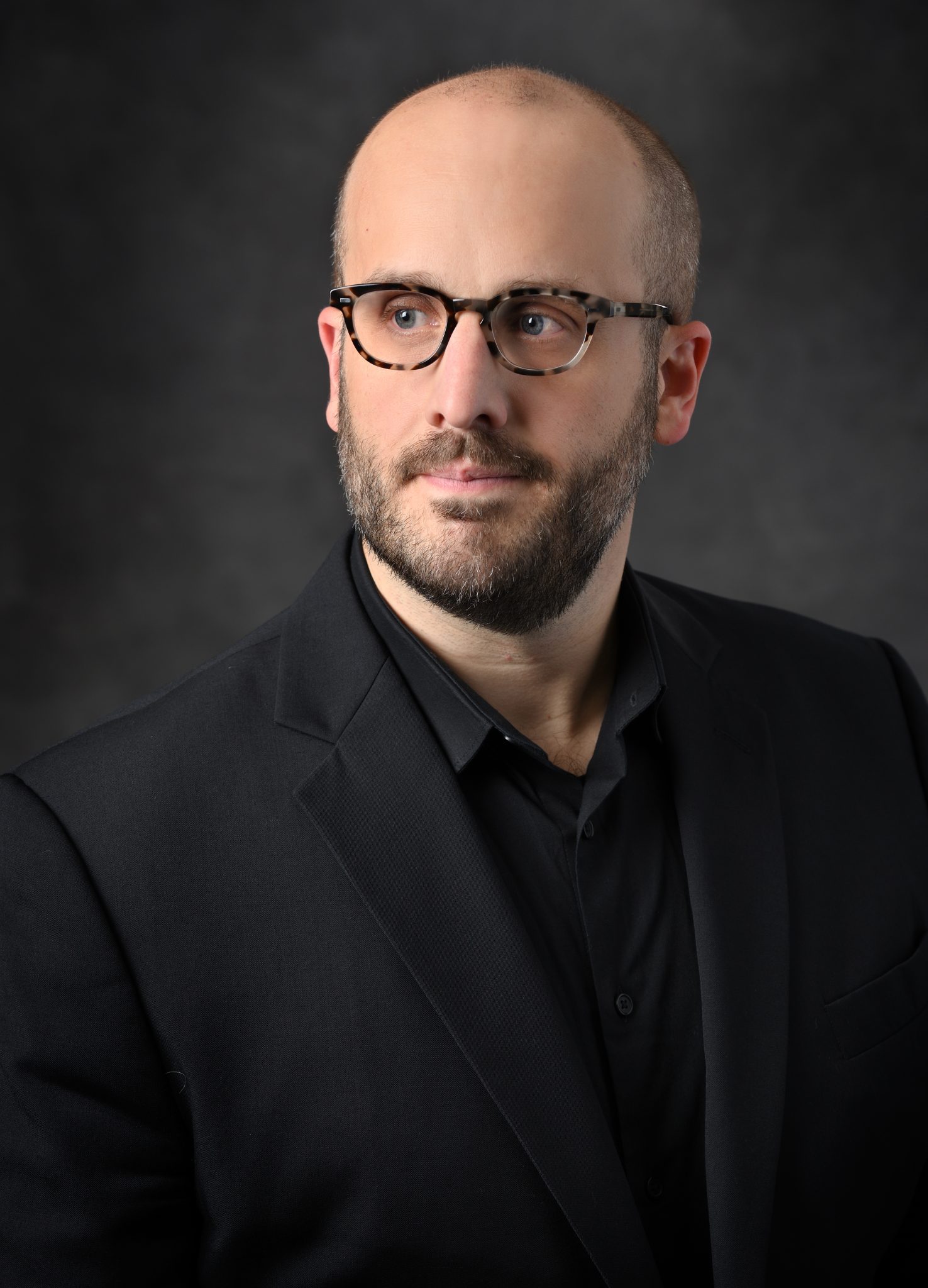David Biedenbender (b. 1984) is a composer, conductor, performer, educator, and interdisciplinary collaborator. His music “…seizes the ear through a blend of expressive beauty and formal prowess…at turns rapturous and intimate, menacing and exuberant…Biedenbender isn’t afraid to wear heart on sleeve as he applies telling nuances to concise, exquisitely shaped sonic tales.” (Gramophone) He has written music for the concert stage as well as for dance and multimedia collaborations, and his creative interests include working with classically trained musicians and improvisers, chamber and large ensembles, interactive electronic interfaces and live brain data. His music is influenced by experiences performing in rock and jazz groups, classical ensembles and concert bands, a New Orleans-style brass band, as well as Indian Carnatic Music. “…active, compelling…shot through with energy….wonderfully imagined…Clearly, this is a composer to watch out for.” (Fanfare Magazine)

David is interested in the expressive power of combining strange and unusual elements—often timbres and textures—with things that are more familiar—like harmony and melody. He often embeds the resonance of imagined spaces into the music itself, using acoustic instruments to emulate electronic processes. He is also drawn to exploring the perception of time and memory in music through the relationships between various temporal layers, rhythm, and meter.
David has collaborated with many renowned performers and ensembles, including Alarm Will Sound, Albany (NY) Symphony Orchestra, PRISM Saxophone Quartet, Stenhammar String Quartet (Sweden), New Jersey Symphony Orchestra, Aspen Contemporary Ensemble, VocalEssence, Cabrillo Festival Orchestra, Pittsburgh New Music Ensemble, Music from Copland House, American Brass Quintet, and the New York Virtuoso Singers, among many others. His works for wind ensemble have been performed by distinguished ensembles around the world, including La garde Républicaine, the United States Navy Band, “President’s Own” Marine Band, “Pershing’s Own” Army Band, Army Field Band, Coast Guard Band, and Air Force Band,” as well as many leading collegiate and conservatory wind ensembles. He was also the 2022 Guest Composer at Fermilab National Accelerator Laboratory, a Department of Energy national laboratory specializing in high-energy particle physics.
Recognition for David’s work includes the Rudolf Nissim Prize, Sousa/Ostwald Award, two ASCAP Morton Gould Young Composer Awards, a Barlow Commission, and the Suzanne and Lee Ettelson Composers Award. His music has been heard in many diverse venues, including Carnegie Hall, Gaudeamus Muziekweek/TivoliVredenberg (Netherlands), Symphony Space (NYC), Smithsonian Museum, Antonín Dvořák Museum (Prague), Harris Hall (Aspen Music Festival), National Sawdust (NYC), the Interlochen Center for the Arts, as well as at numerous universities and conservatories, and it has been broadcast on NPR stations around the country. David’s music can also be heard on many commercially available recordings, including on Blue Griffin, Naxos, XAS, Summit, Cobra, GIA, Centaur, Bright Shiny Things, and Innova record labels, among others.
In addition to composing, David is a dedicated teacher. He is Associate Professor and Chair of Composition in the College of Music at Michigan State University, and he has served previously on the composition and theory faculty at Boise State University, Eastern Michigan University, Oakland University, Madonna University, Music in the Mountains Summer Conservatory in Durango, CO, and the Interlochen Arts Camp. His composition students have achieved regional and national recognition for their creative work, including numerous awards and acceptance into renowned summer music festivals and undergraduate and graduate composition programs.
He holds degrees from the University of Michigan (DMA, MM) and Central Michigan University (BM). His musical mentors include Evan Chambers, Kristin Kuster, Stephen Rush, Michael Daugherty, Bright Sheng, Christopher Lees, David R. Gillingham, José Luis-Maurtúa, John Williamson, and Mark Cox. He also studied at the Swedish Collegium for Advanced Study with Anders Hillborg and Steven Stucky, the Aspen Music Festival and School, and in Mysore, India where he studied South Indian Carnatic music, focusing on the mridangam with Vidwan G.S. Ramanujan. For more information, visit www.davidbiedenbender.com.
Download Press Kit (Bio and Photos)